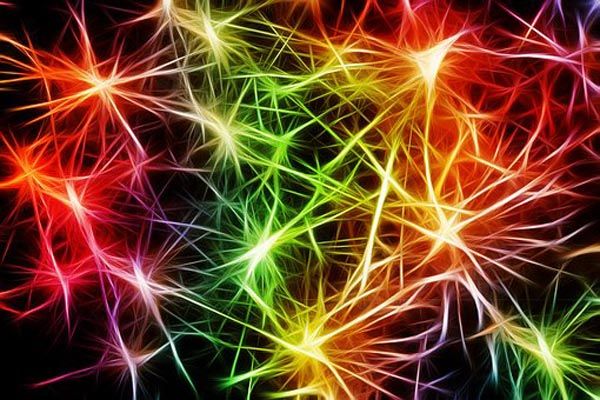If you remember your algebra, In Boolean logic, a variable can either be 1 or zero. To put it in another way mathematically, the truth values of variables may only be the integer values 0 or 1. General Logic is based on two values i.e. true and false. It is sometimes inadequate when describing human reasoning. Fuzzy logic on the other hand is employed to handle the concept of partial truth, where the truth value may range between completely true and completely false. Fuzzy logic imitates the logic of human thought which is much less rigid than the calculations computers generally perform.
Fuzzy logic emulates neural networks

Pixabay
Fuzzy logic is used in many fields as diverse as control theory and artificial intelligence. It is used for situations in which binary logic technologies are not effective. It is used for systems and that cannot be precisely described by mathematical models. It is applicable to those that have significant uncertainties or contradictory conditions, and linguistically controlled devices or systems. Fuzzy logic is similar to a neural network. A neural network is a system of hardware or software patterned after the operation of neurons in the human brain. Neural networks, also called artificial neural networks, are a variety of deep learning technologies.
History
Fuzzy logic was first developed by Dr. Lotfi Zadeh of the University of California at Berkeley in the 1960s. It was sent in the proposal of fuzzy set theory in 1965. Lotfi Zadeh said:
“Fuzzy logic is not going to replace conventional logic (computers) or methodologies; rather it will supplement them in circumstances where conventional approaches fail to solve a problem effectively”
Why Fuzzy Logic?
Fuzzy logic is useful for commercial and practical purposes. It can control machines and consumer products. Fuzzy logic helps to deal with the uncertainty in engineering, though It may not give accurate reasoning, It gives an acceptable one.
Applications of Fuzzy logic
Fuzzy logic is implemented in systems with various sizes and proficiencies. These range from small micro-controllers to large, workstation-based control systems. It can be implemented in hardware, software, or both. It is used extensively in control-systems fields. Fuzzy logic has been applied in the following application areas: Subway control in Japan, Medical science, Anti-lock braking system, Breakdown prediction of nuclear reactors and Earthquake forecasting in China.
An assistant professor of computer science and engineering at the University of California at San Diego Dr. Charles Elkan says:
"It turns out that the useful applications of fuzzy logic are not in high-level artificial intelligence but rather in lower-level machine control, especially in consumer products. Usually, fuzzy controllers are implemented as software running on standard microprocessors. A few special-purpose microprocessors have been built that do fuzzy operations directly in hardware, but even these use digital binary (0 or 1) signals at the lowest hardware level. There are some research prototypes of computer chips that use analog signals at the lowest level, but these chips simulate the operation of neurons rather than fuzzy logic."
Subway control in Japan
The Sendai Subway system in Sendai, Japan went into operation in 1988. It is one of the most well-known applications of fuzzy logic. It was developed by the Hitachi cooperation. Sendai Subway system is the world's first public train to use fuzzy logic to control its speed. The control of the Nanboku line uses a fuzzy controller to run the train for 24 hours. This made the line one of the smoothest running subway systems in the world and increased efficiency as well as stopping time.

Anti-lock braking system
This is basically a system that allows the wheels on a motor vehicle to maintain tractive contact with the road surface according to driver inputs while braking, The control rules that describe an anti-lock braking system consists of parameters that include the brake pressure, speed, brake temperature, the interval between applications of the brakes and the angle of the car's lateral motion to its forward motion.
These parameters are all continuous and open to interpretation by a design engineer. One such rule in an anti-lock braking system could be:
IF brake temperature is 'warm' AND speed is 'not very
fast,' then brake
pressure is 'slightly decreased.'
Medical science (Clinical decision support systems)
One of the most active research areas for fuzzy logic is the development of medical domain application . One example of the medical domain application is the detection system for heart disease. Fuzzy logic is used for this purpose clinical decision. Clinical decision support systems are widely categorized into two major groups namely:
Knowledge based CDS: knowledge based clinical decision support system comprises rules mostly in the form of IF–Then statements. Generally the data are associated with these rules. For instance, generate warning and more only if the pain intensity is up to a certain level. Generally the knowledge based CDSS encloses three main parts –knowledge base, inference rules and a mechanism to communicate. The adaptive guidelines from a knowledge base server prove to be much more effective than others in certain cases, such as that of chest pain management.
Non-knowledge based CDSS: Basically In computer aided support system, various methods are exploited to congregate information used for the process of decision-making. neural network, Statistical method, knowledge based methods, fuzzy logic rule-based, genetic algorithms and more are included in these methods
Fuzzy Markup Language
Designed and developed by Giovanni Acampora during his Ph.D. course in Computer Science Fuzzy Markup Language (FML) or EE STANDARD 1855–2016 is a specific purpose markup language based on XML. It is used for describing the structure and behavior of a fuzzy system independently of the hardware architecture devoted to host and run it.
Conclusion
Applications for fuzzy logic are found almost everywhere. These applications are in areas which have been found to be difficult to solve with traditional analytical techniques. Computing models cannot deal effectively with these problems and this makes fuzzy logic beneficial and rewarding. There are so many other problems like power system fault diagnosis, crime investigation, decision making behavior and others which can be solved with fuzzy logic.
Thanks for reading.



Good post on something which speaks on the "real" values that the world runs by. The world is not binary in nature, everything is not true nor false, hot nor cold, black nor white. It would be nice if it were, but sadly not the case.
Trying to implement fuzzy logic however outside of a machine learning system, which uses values between -1 and 1 by hand would suck, as instead of true or false, you could have say, temperature of train >= 60 and temperature of train <= 70 then warm.
So I would go to say that in a traditional computational sense, fuzzy logic is more an abstraction over many binary / data states.
Downvoting a post can decrease pending rewards and make it less visible. Common reasons:
Submit